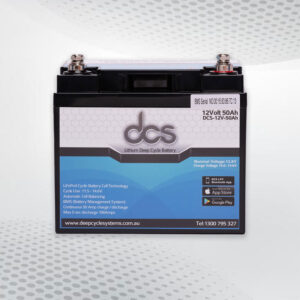Description:
With computer science becoming increasingly crucial, equipping children with coding skills early is vital. However, traditional text-based languages like Java and Python present a steep learning curve. Their precision, memorization demands, and computer-specific syntax can be overwhelming for young minds. For years, languages like C++ and Java created barriers for learners of all ages, especially children.
Thankfully, STEM education-provider institutions like STEMbotix have designed innovative tools to make software development fundamentals accessible and engaging. One such solution is block-based coding, a low-entry tool that simplifies the process.
What is block coding?
Block coding is a simplified way to learn the basics of programming. Instead of typing out lines of code, users arrange blocks in a specific order to create a program. These blocks represent different commands, functions, or operations, and they snap together like pieces of a puzzle, making it easy to understand and manipulate the logic of the program.
How does block-based coding work?
Block-based coding works by simplifying complex code into visual, drag-and-drop blocks. Each block represents a specific function, like moving a character, playing sound, or making a decision. These blocks have interlocking shapes that guide users on how to connect them logically.
Here’s a breakdown of the process:
- Visual Blocks: Different types of blocks exist for various actions, such as movement, sound, logic, and data manipulation. Each block has a clear visual representation of its function.
- Drag-and-Drop Interface: Users simply drag the desired blocks from a library and connect them in a sequence to create a program. The interlocking shapes ensure logical connections and disallow illogical combinations.
- Code Generation: Behind the scenes, the connected blocks translate into actual code in a text-based language. This code is hidden from the user, allowing them to focus on the logic and flow of the program.
Pros
- Engaging and Fun: The visual and interactive nature makes coding enjoyable, cultivating a positive attitude towards learning and problem-solving.
- Develops Logical Thinking: Building programs with blocks encourages kids to think logically, solve problems, and develop computational thinking skills valuable in various aspects of life.
- Strong Foundation: Block coding provides a solid foundation for understanding programming concepts like sequencing, loops, and conditional statements, preparing for more advanced coding.
- Boosts Creativity: Kids can use block coding to create stories, games, and animations, allowing them to express their creativity and build confidence in their digital abilities.
Cons
- Limited Complexity: Block-based platforms may not be suitable for creating highly complex programs or applications. They may have limitations in functionality compared to text-based languages.
- Less Exposure to Syntax: While block coding provides a strong foundation, it does not directly teach the complexity of text-based syntax, which is essential for advanced programming.
- Not a Replacement for Text-Based Coding: This coding might be a stepping stone to learning programming languages. However, it is important to eventually make headway in text-based coding for professional software development.
Blockzie: A Beginner-Friendly Coding App
Blockzie is a web-based coding application designed for education and young people, by STEMbotix.
It uses ‘block-based’ coding, where there is no need to type code, as coding is done with the help of jigsaw pieces.
It was designed to teach block coding to 8–16-year-olds; however, it has become a good choice for learning coding and creating projects regardless of age.
You can share the things you create so other people can use them and also ‘remix’ them to edit a copy of the code themselves.
Features Of Blockzie
- Simplicity: Blockzie features a user-friendly interface that makes coding accessible, even for beginners.
- Learn by Doing: Blockzie combines theoretical knowledge with practical exercises, allowing users to solidify their understanding and apply it to real-world projects.
- Progressive Learning: The platform starts with fundamental coding concepts and gradually progresses to connecting sensors and microcontrollers for more complex automation tasks.
- Hardware Interfacing: A standout feature is the hardware interfacing tool, which allows users to connect various hardware devices and control them through code, bringing their creations to life.
- Wide Applications: Blockzie empowers users to automate devices in their homes, offices, or anywhere else they can imagine, fostering creativity and innovation.
If you’re looking for a beginner-friendly way to learn to code and explore the world of programming, Blockzie is worth considering!
Conclusion
In conclusion, block coding is an excellent entry point for beginners looking to dip their toes into the world of programming. Its visual nature, accessibility, and interactive features make it an ideal learning tool for students, educators, and anyone interested in developing computational thinking skills. Whether you are a kid learning to code for the first time or an adult looking to explore new skills, block coding offers a fun and engaging way to learn the fundamentals of programming.
So why not give it a try and start building your first program today?



